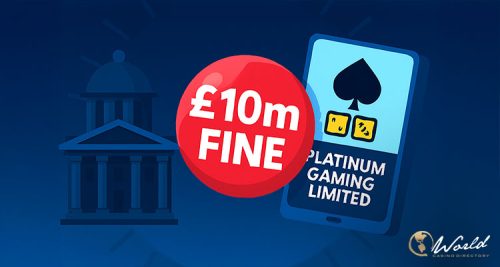Great Britain’s Gambling Commission has increased disruption activity to clamp down on black market operators during the most recent quarter, with more illegal websites referred to search engines than in any previous quarter.
The regulator detailed its latest actions in the third chapter of its research into illegal online gambling. This focused on the disruption of the market, with the commission running several schemes to combat illegal operators.
For the fourth quarter, ended 30 June, some 321 websites were referred to search engines for removal. This was almost 200 more than in Q3 and more than double both Q1 and Q2.
On top of this, 147 referrals were made to registrars or hosts, while cease-and-desist notices were issued to 145 illegal operators. A further 77 cease-and-desist notices were sent out to advertisers.
As for outcomes of this action, some 214 of the flagged websites were removed from search engines, while 108 other sites were geo-blocked or ring-fenced. The commission also noted 42 advertisements or affiliates linked to black market sites were removed, and 22 others suspended by registrars or hosts.
“Geo-blocking and blocks by registrars appear to be more effective methods of disruption,” the Commission said. “Removals from search engines still have an impact, but to a lesser extent. This is likely because removal from search engines make the website harder to find, but do not fully block access.
“Geo-blocking and registrar blocks are more effective, provided that consumers are not accessing these sites using a virtual private network (VPN) in the case of geo-IP blocking.”
Long-term impact of disruption
Since April 2024, the regulator’s black market team has issued 3,140 cease-and-desist disruption notices. Cease-and-desist orders hit 2,032 by Q3, while 774 registrar referrals were made, 402 to host and three to payment providers.
In total, 447,778 URLs were referred to Bing and Google since last April. URLs differ to websites in that they are a specific web address for a single page or file, with operators able to run many URLs to the same website. Of those referred, 287,961 have been removed since April last year.
In terms of illustrating wider impact, the Gambling Commission used data from 160 websites that had disruption activities taken against them. On average, across the 160 sites, there was a 32% decrease in engagement following disruption.
“We recognise that this work is at an early stage, but the signs of progress are encouraging,” the regulator said. “We remain committed to building our capability, sharing our approach internationally and working with industry to protect consumers and uphold the integrity of the regulated market.”
Commission aware of emerging threats
However, despite upping its actions, the Commission said illegal operators are beginning to adapt their tactics in response to interventions.
Among its primary concerns are changes to how URLs are structured, rotating domains and embedding gambling content within unrelated websites. As such, the regulator said it would continue to evolve its methods to effectively tackle illegal operations.
“These behaviours indicate our disruption efforts are having an effect and are prompting evasive action,” it said. “As the illegal marketplace evolves, we will remain alert to these changes and continue to adapt our strategy to ensure we respond quickly to emerging threats.”
What new methods is the Gambling Commission using to combat black market?
As to how the regulator is responding, it is seeking new referral routes with platforms used to host unlicensed gambling content. With this, it will continue to work with host platforms, search engines and content platforms to remove illegal content and obtain data about the operators.
The Commission also flagged evolving efforts in terms of international coordination and cross-border jurisdiction, given that many illegal sites targeting the UK are licensed overseas or have operators based abroad. It is running joint projects with other regulators, including the Dutch Kansspelautoriteit, to align disruption efforts and share intelligence.
Others steps include using machine-learning and scripting to automate scraping of data from illegal sites and compile intelligence. This, the regulator said, supports deeper analysis, helps with removal requests and offers greater insight into large-scale patterns.
The Commission is also seeking to work more closely with financial and payment providers to tackle illegal sites. In January, it made its first referral to Visa for illegal sites facilitating Visa payments. It plans to extend this to Mastercard, as well as digital wallets such as PayPal, Google Pay and Apple Pay.
In addition, it is developing a focused cease-and-desist route for digital marketing associated with illegal sites. This, it said will help tackle aggressive digital marketing and manipulation by such websites.
“We also see a valuable opportunity for industry to continue to support our efforts by sharing intelligence about illegal markets activity having an impact and to also gather insight into marketing and advertising strategies associated with the regulated sector,” the regulator said.
“Alongside our existing approach, this collaboration will be vital in ensuring we continue to tackle illegal activity causing the most harm and develop our wider understanding of the marketing and advertising techniques being deployed or copied by illegal markets actors.”

 22 hours ago
14
22 hours ago
14














